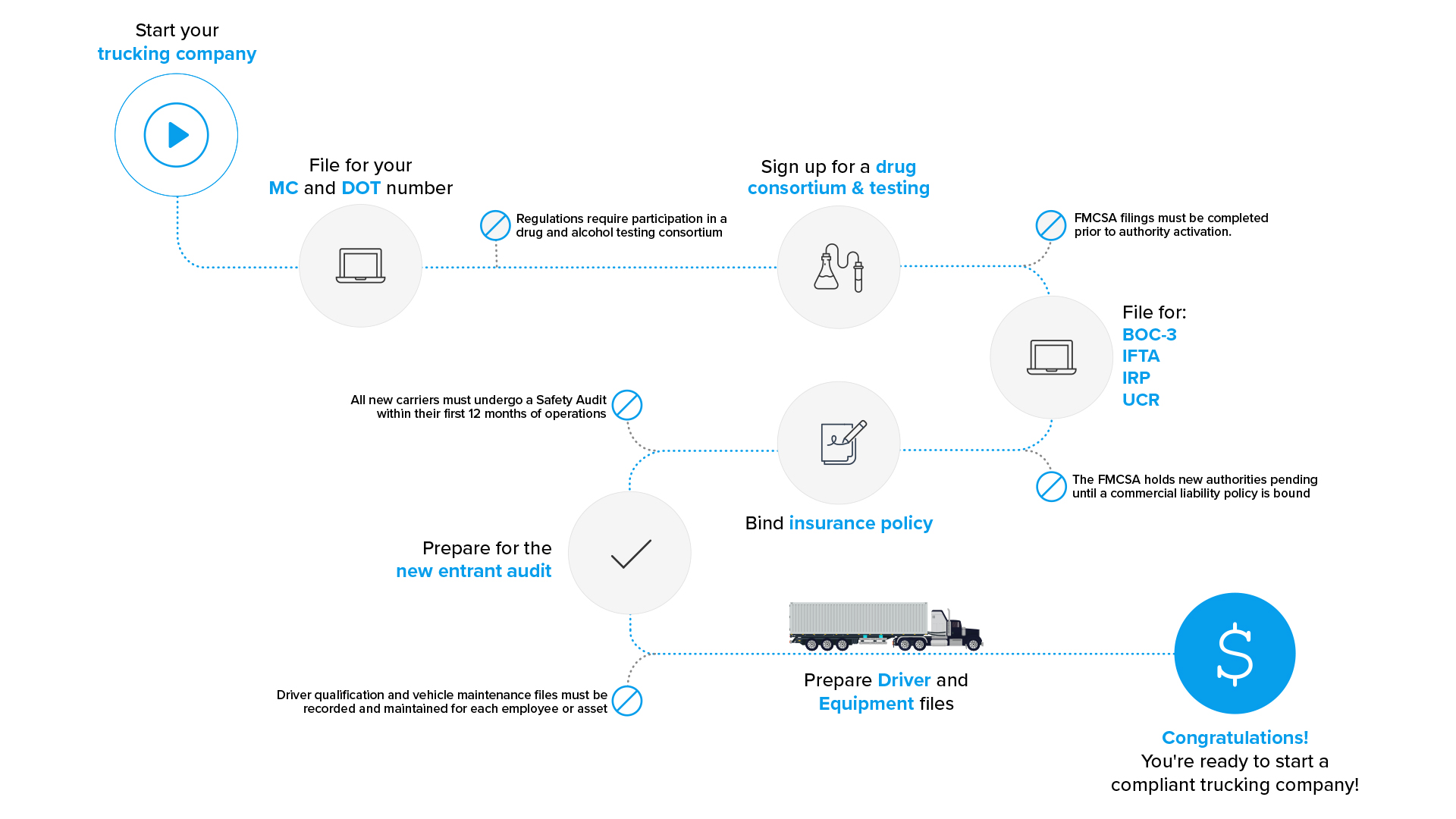Transport Compliance Services for Your Trucking Company
The Department of Transportation (DOT) maintains the safety of the U.S. transportation system to protect the public. A company is DOT compliant when a company meets or exceeds DOT standards, such as refraining from drugs or alcohol, meeting driver qualifications and following inspection and maintenance requirements. Violating any of these standards can lead to consequences.
All commercial motor carriers must undergo regular monitoring to ensure they continue to comply with DOT standards.
Porter Freight Funding’s trusted partners will help you determine where your company stands regarding DOT compliance. Our trusted partners will help your company improve compliance, giving you more time to focus on running your business. Contact us at 205-397-0934 or complete our online contact form to learn more about our trucking compliance services.
Call Us Today
205.397.0934
Consequences of Non-compliance With DOT Standards
Failing to take DOT compliance seriously may lead to several consequences.
Financial Penalties
If your company is not DOT compliant, you may be subject to fines ranging from hundreds to thousands of dollars. Common reasons you may receive a fine include recordkeeping violations and alcohol prohibition.
Injury
While failing to comply with DOT standards rarely results in driver or civilian injury, it is the most severe consequence. A driver who disregards all safety standards becomes a hazard to everyone on the road.
Damaged Company Reputation
While a single violation may not affect your company and its reputation, repeated offenses can quickly tarnish your brand name. If you have a history of noncompliance, clients will be concerned about your operations and the safety of the materials you transport.
Job candidates may also look for employment only with companies that have an unblemished DOT compliance record.
How to Improve Compliance
Many compliance transportation services don’t require a large number of resources or time to create a cost-effective solution. Some Fleet managers can take several steps to boost DOT compliance.
Create a Culture of Safety
The first step in improving DOT compliance for trucking companies is establishing a company culture of safety and compliance. Building compliance awareness among all departments and employees ensures everyone is alert and ready for anything. Emphasizing the importance of DOT compliance among drivers and managers makes it easier for your company to work towards compliance together.
Develop a Training Program
Creating a robust training program ensures your entire company is DOT compliant. Emphasizing transport compliance during onboarding, training and throughout a driver’s tenure will ensure safety is always at the forefront of everyone’s mind.
Holding regular compliance training sessions also allows you to bring attention to any standards that have changed and ensure everyone is aware of the most current information.

How To File for Trucking Authority
Whether you’re an experienced driver or completely new to the transportation industry, once you decide to become an owner-operator and work for yourself, you must file for your trucking authority.
Things you need before you start filing:
- Know the type of authority you need to apply for
- Have a business name and entity – file it with your state
- Get an Employer Identification Number (EIN)
- Get an insurance policy
- Get your MC number
Get a USDOT number
This is your company’s ID number and is used to access all your company information (vehicle type, cargo type, safety and
compliance). All trucking company’s must get a USDOT number and renew it every 2 years.
File a BOC-3
After you have completed your MC application, you have 21 days to file your BOC-3 and get an insurance policy. You are not
authorized to start working until your MC Number is active and your BOC-3 and insurance policy is filed with the FMCSA.
Set up your International Registration Plan and get your apportioned plates
For your IRP, you must register your fleets of vehicles that travel in multiple jurisdictions. To register, you need your VIN,
title information, purchase cost and date, and the make and model of your vehicle. Once you pay the fee that is determined by
number of states you work in and number of miles you drive, you will get your apportioned tags.
Create an International Fuel Tax Agreement (IFTA)
This agreement is between the lower 48 states and Canadian provinces to simplify the reporting of fuel taxes by interstate
motor carriers. You must complete your fuel tax report at the end of each fiscal quarter, list all miles traveled in participating
jurisdictions, and all fuel purchases.
Complete a Unified Carrier Registration (UCR)
All trucking company’s that operate their commercial motor vehicles in interstate or international commerce must register with
their home state and pay an annual fee. This fee is based on the size of the fleet and must be renewed every year.
Sign up for drug and alcohol consortium
The FMCSA and DOT require all truck drivers to have negative drug screens prior to hiring or driving themselves.